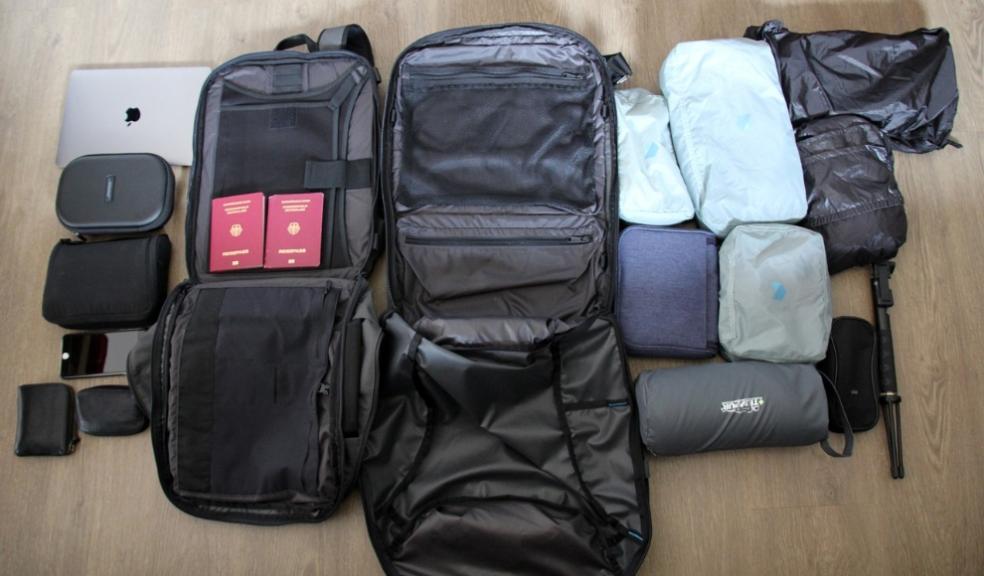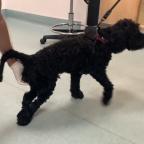
Dogs Trust warns new border control system is open to exploitation, putting dogs and the public at risk
- Charity warns post-Brexit animal border controls are not working
- The Government's new Border Target Operating Model (BTOM) leaves UK pets open to disease risk
- Key border control post responsible for checks is 22 miles from Dover
- Criticism echoed in recent EFRA report, which says system is making it easy for importers to "game the system", undermining biosecurity and trust.
The UK's largest dog welfare charity, Dogs Trust, is raising the alarm over serious flaws in the UK's post-Brexit animal importation system that could be putting the welfare of pets and public health at risk.
The Government's new Border Target Operating Model (BTOM), designed to enhance safety and security controls at the UK border for the commercial import of live animals and other goods, promised much-needed changes to improve animal welfare and protect against disease.
When announced, Dogs Trust warmly welcomed some of the details of the model, including the physical and welfare check of all dogs entering the country via commercial travel, something the charity had campaigned on for many years to tackle the importation of underage puppies and heavily pregnant bitches.
The charity also welcomed the proposed steps to reduce the risk of disease being brought into the UK. It was proposed that all dogs imported via commercial means would undergo a health check performed by a vet in their country of origin, as well as a further health and welfare check on arrival. This would reduce the potential risks of importing dogs from abroad, including introducing and spreading diseases not generally found in dogs in the UK such as Brucella Canis and Rabies.
However, over a year on from the introduction of the BTOM, Dogs Trust is warning that promised protections are not being delivered, with serious gaps in enforcement leaving the system vulnerable to abuse.
One of the most critical concerns is the location of the designated Sevington Border Control Post (BCP) responsible for inspecting animals arriving via commercial travel through the Port of Dover. It is situated 22 miles inland from the Port. This distance not only raises serious animal welfare issues, with dogs already often travelling hundreds of miles before reaching the UK, but also presents a major security risk, allowing unscrupulous importers to potentially unload dogs before any checks are carried out.
Dogs Trust is particularly alarmed by the disease risks associated with current failings. There are many potential risks of importing dogs from abroad, including the risk of introducing Brucella Canis. This is of significant concern as it poses a serious health risk to dogs, and as a zoonotic disease, also to the human population. In 2022, there was a case of human infection with Brucella canis in the UK. This was the first confirmed UK example of dog-to-human transmission of Brucella Canis. The infected person was fostering dogs imported from Eastern Europe for a rescue organisation prior to them being homed in the UK. The foster carer became ill approximately six weeks later, and both the carer and the imported dog were subsequently confirmed as Brucella Canis positive. The carer was hospitalised due to her illness and made the difficult decision to euthanise her four family dogs.
There is also concern about the rabies vaccination status of imported dogs. A previous investigation in 2020 by Dogs Trust found examples of imported dogs being advertised for sale online, far too young to have had their rabies vaccines. Inconsistencies with their stated ages in relation to their vaccination dates were concerningly found frequently.
Claire Calder, Head of Public Affairs at Dogs Trust, says:
"We initially welcomed the details set out in the BTOM, which would have gone a long way in reducing the number of dogs arriving in the UK in poor health and welfare conditions for sale.
"However, like others, we are now deeply concerned that the reality falls far short of the promise. With inspection posts miles away from ports, and inconsistent application of checks, the system is wide open to exploitation, putting dogs and the public at risk."
These concerns were echoed in last week's Environment, Food and Rural Affairs (EFRA) Committee report, which stated that BTOM is:
"Failing to provide a robust, risk-based regime of inspections is imposing excessive burdens both on responsible, law-abiding businesses and on local authorities, and may be creating incentives and opportunities for criminals."
The report also warned that varying inspection rates at different ports have made it easy for importers to "game the system", undermining biosecurity and trust.







